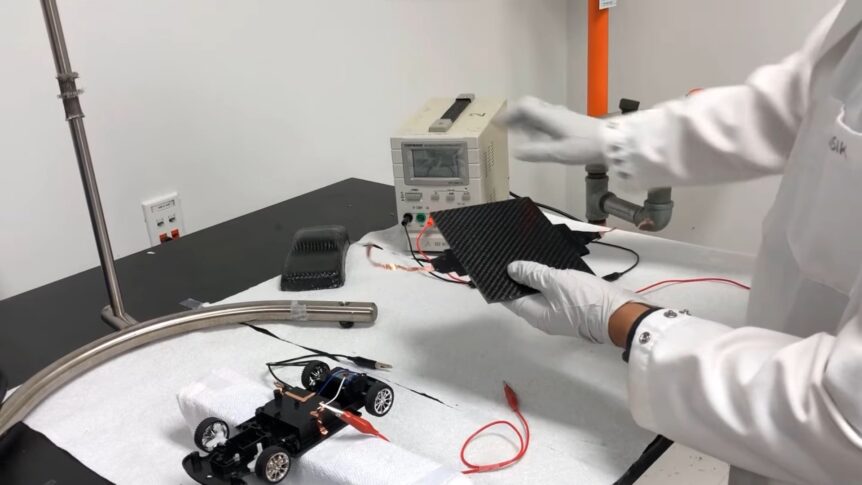Is it possible to combine the best features of batteries and supercapacitors to get both enduring energy storage and bursts of power? Batteries, to varying degrees can store energy and release it over time. Supercapacitors can provide instant, but short-lived power. Even more challenging, can can we form a hybrid structural battery, combining form with function? University of Central Florida researchers think they’ve answered those questions with a battery-supercapacitor hybrid material that could form “power suits” for electric vehicles. Improving on an Earlier Idea This blog first reported on structural batteries 12 years ago, examining the efforts of Volvo and Dr. Emile Greenhalgh of Imperial College London. Several approaches have been made to create a structural battery, but the “power suit” combines electrical potency with enough structural strength to resist driving impacts. UCF reports, “This new breakthrough continues this line of thinking, with scientists at University of Central Florida and NASA designing a new material featuring unique properties that allow for …
Decorated Anodes Make Light Work of a Fast Charge
Most stories featuring this scientific couple’s (and a few associates’) work focused on the 10-minute charging time for their portable electronics batteries. More interesting to those who look forward to applying this technology in electric vehicles, the three-dimensional, silicon-decorated, cone-shaped carbon-nanotube cluster architecture for lithium ion battery anodes enables a “63 percent increase of total cell capacity and a battery that is 40 percent lighter and smaller.” “Than what?” your editor’s high school math teacher would have insisted. The decorated item would be 63 percent better at holding a charge and 40 percent lighter and smaller than a similar cell with a graphite anode common to many lithium-ion batteries. Even though the researchers concentrated on the anode and seemed not to take a more holistic approach to battery design, the overall results seem promising. Husband and wife team Cengiz S. Ozkan, a mechanical engineering professor at UC Riverside’s Bourns College of Engineering; and Mihrimah Ozkan, an electrical engineering professor, worked with …

